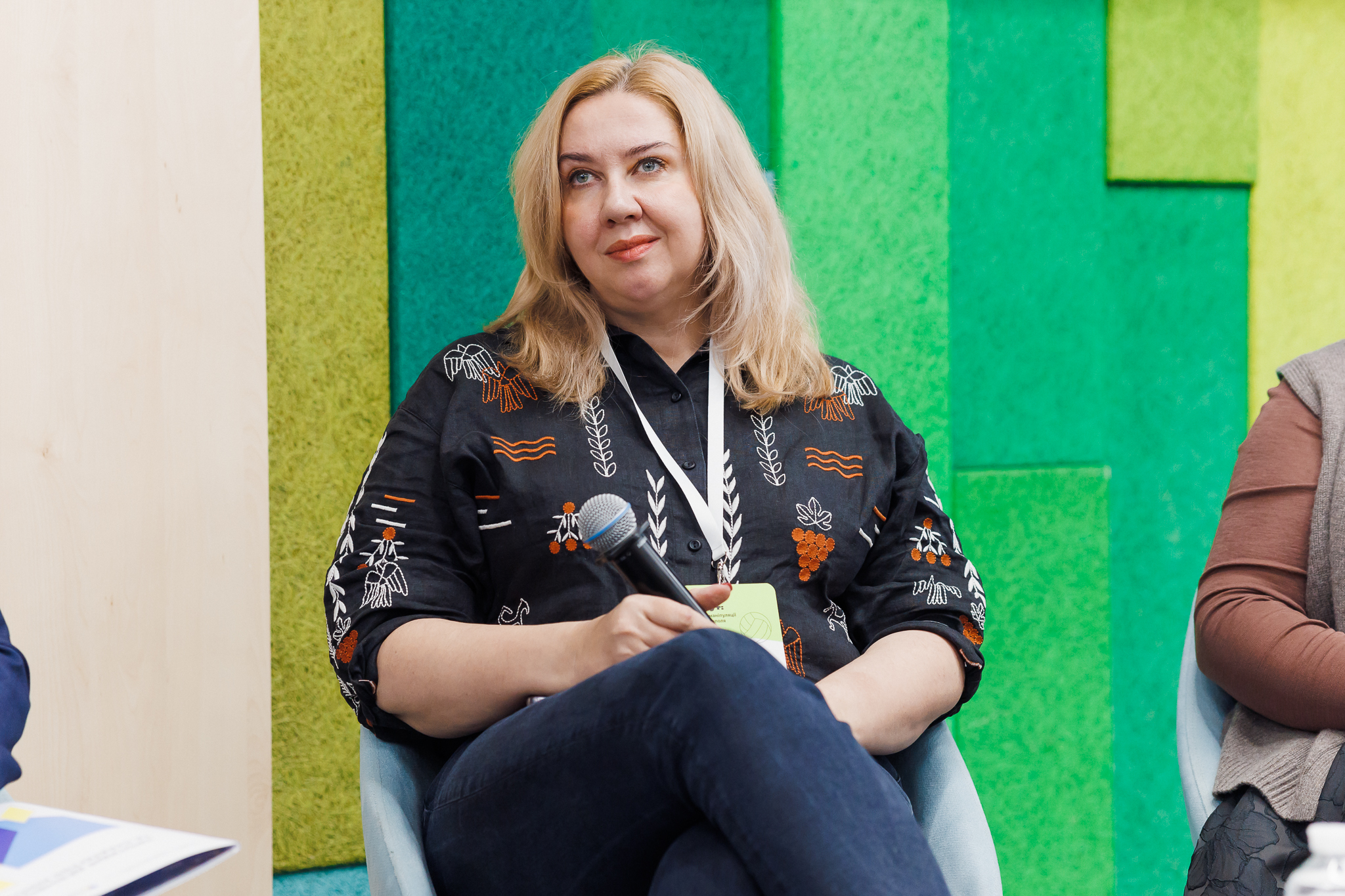The most urgent threats to the Ukrainian media field include the decline of trust in traditional media, the use of AI to produce and distribute (deep)fakes, the authorities’ doubts about social media regulation, and the polarization of society and distrust of institutions, stressed Oksana Romaniuk, the director of the Institute of Mass Information (IMI), at the conference “DisOut: Pushing manipulation out of the information space” on October 25 in Kyiv, reports the IMI correspondent who attended the conference.
“I can identify the following threats. The first is the decline of trust in traditional media, the second is deepfakes, manipulation created with artificial intelligence, and we have no mechanism to counteract this. The third is certain social media platforms amplifying and very rapidly spreading pro-Russian posts and the government’s doubts when it comes to regulating these platforms. And, finally, the polarization caused, among other things, by the united telethon, which significantly swayed society’s trust pendulum. As a result, we have a very positive picture on TV and society is looking elsewhere for something to balance it out with,” said Oksana Romaniuk.

Oksana Romaniuk speaking at the conference “DisOut: Pushing manipulation out of the information space” in Kyiv on October 25, 2024. Photo by Serhiy Khandusenko, Internews Ukraine
“Despite this, trust in the regional media remains high, so the drop in donor funding for these media is a problem,” Oksana Romaniuk added.
According to her, another threat, which is global, is the commerce-oriented stance of social media platforms themselves, which aims to promote posts that cause the most intense emotional response and yield the most audience engagement.
“Manipulative, sensational posts have a larger outreach on social media. Ukraine will not be able to overcome this problem on its own, we need to cooperate with international organizations. This problem is global, but still unresolved; instead, we all saw the UN Secretary-General shaking Putin’s hand. This shows the entropy of international organizations that were supposed to be fighting against Russian disinformation,” the IMI director stressed.
Earlier, Oksana Romaniuk said that the value of the regional media, investigative journalism, and modern technologies were the main media trends in 2024. Still, access to the sites affected by Russian shelling and to meetings of local self-government bodies remains a challenge for journalists.
For reference: the conference “DisOut: Pushing manipulation out of the information space” was organized by the NGO Internews Ukraine with the support of the Government of Canada.
